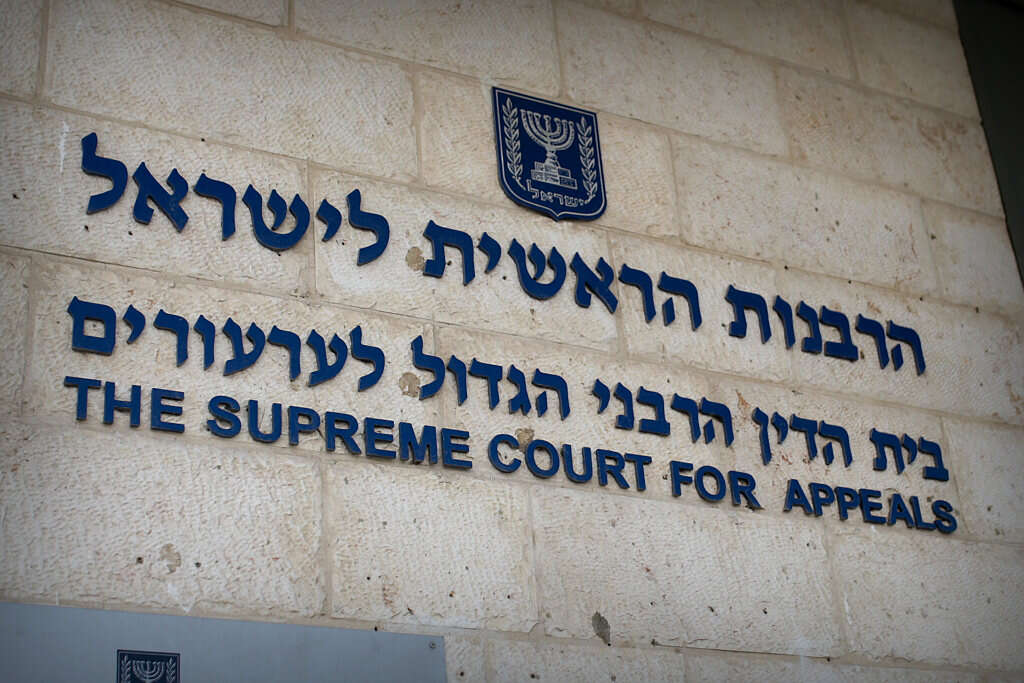MKs Rotman and Malul's Chief Rabbinate bill was approved in a preliminary reading by the Constitution Committee.
The law goes on to strengthen a system whose leaders do not represent the majority of the Israeli public, and certainly not women.
Not only are there no female rabbis in a state position, but women are also not called upon to participate in the body that selects candidates for office, except for a negligible percentage that elects the two chief rabbis.
The Chief Rabbinate does not recognize the vast Torah world of women and the growing feminine-religious leadership. The rabbinical courts are in no hurry to use halachic tools that can help free dozens of women from anchorage and divorce refusal. They do not recognize women as rabbis and halachic women, despite great achievements in learning and spiritual leadership. When women are transparent, you don't see them submerged in the mud floor, nor when they soar and shatter the glass ceiling.
There is a great deal of activity in Israel to reduce gender gaps. In religious society, Torah studies are one aspect of the feminist-religious revolution, one of the largest that Israeli society has known in recent decades. This is a revolution that began before the establishment of the State of Israel, when religious women demanded the right to vote and be elected, such as Ada Fishman-Maimon and Tova Sanhedrai, who was among other things the first Knesset member in the National Religious Party.
Religious Zionism (the original and wonderful one, not the partisan one that hijacked and damaged the prestigious brand) was and still is the driving force and full partner from the establishment of the state until today. We have always been part of Israeli society as a whole, along with belonging to the religious community.
An uncompromising, albeit complex, combination. For decades, religious women have been expanding their spheres of influence. Religious women are at the forefront of research, academia, medicine, law, education. But when we reach the Torah field, religious services and synagogues, we disappear. This absence is intolerable, and this is what we religious feminists struggle for every day.
We have come a long way, and the road is still being paved. We waged a struggle over the possibilities of immersion in mikvehs and a struggle in the rabbinical courts for agunot and divorce refuseniks, and demanded the right to be tested and receive the state's recognition of halachic knowledge in rabbinical ordination. We have achievements. But inequality is still severe and manifests itself in all arenas: at home, in the synagogue, in the community, in society, in employment, in culture and in policy. The main struggle was, and still is, over representation.
Once we appear at decision-making centers and crossroads of influence in any religious context, we can change from within, we can present things from our perspective, make decisions and promote a healthier society that supports equal opportunity. Our voices are not heard enough. We are a minority within a minority – women, religious. Just as we dared two decades ago to stand in the street and shout that there are cases of sexual exploitation and abuse on the basis of rabbinical status and authority, so today we call out loudly to stop excluding us from positions that we are competent and worthy of occupying, and to work for religious female leadership at the crossroads of influence.
By coincidence, a report by the World Economic Forum (WEF) was published last week, presenting a bleak picture regarding gender equality in Israel. Representation in senior positions in the public sector and politics is shameful, and Israel is in a sharp decline to 83rd place, at the bottom of the world ranking. The Chief Rabbinate, its affiliates and supporters are a significant factor in this decline.
When women are excluded from running religious councils, halachic rulings and Torah practice, we are on the way down. As long as women are excluded from the political campaign, we will continue to compete with Pakistan, Zambia and Indonesia. Only the integration of arms from a broad Israeli spectrum will enable a fundamental change and raise us on the ladder of values for ourselves and for those who look at us from near and far.
Wrong? We'll fix it! If you find a mistake in the article, please share with us

